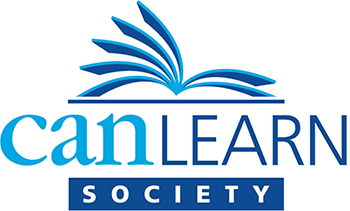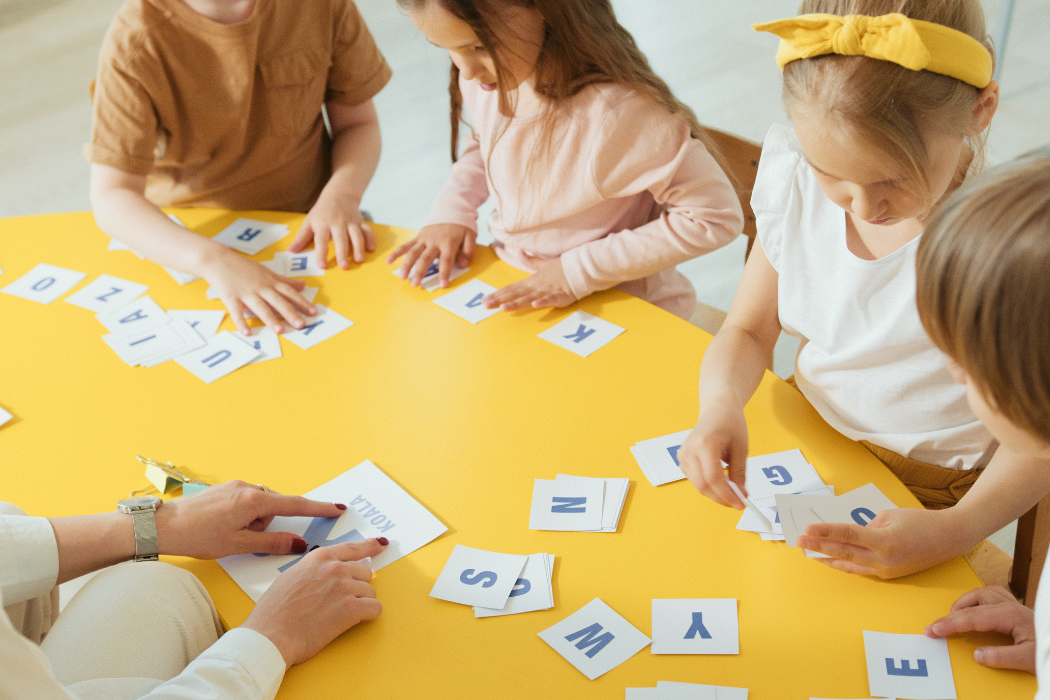Canadian Adult Education Credential (CAEC)
Did you know that the General Education Development (GED) program that was offered in Canada for decades has ended and been replaced with CAEC?
CAEC stands for Canadian Adult Education Certificate.
Completing the CAEC tests gives adults the equivalent of a high school diploma. The tests are:
- English Language Reading
- English Language Writing
- Mathematics
- Science
- Social Studies
Getting a CAEC can lead to several different opportunities, for example:
- Get accepted to college
- Improve employment opportunities
- Personal achievement
At CanLearn, we know that preparing for the CAEC tests on your own can be challenging.
We can help.
Our adult learning programs can help you study and ensure that your reading, writing, math, spelling, and grammar skills are up to scratch.
In addition to preparing for the CAEC tests, CanLearn adult literacy programs can help you:
- Learn or improve skills such as reading, writing, and numeracy regardless of your current level
- Learn how to learn
- Learn how to support your child’s learning at school
- Improve your well-being: feel purposeful and optimistic, build connections with others, develop a sense of belonging
Our programs are:
- Offered in small classes or one-to-one tutoring
- Offered via in-person classes or virtually
The enrollment is ongoing from September to May.
No matter where you are on your learning journey, we can help you meet your goals!
If you are interested in learning with us, please fill out the Information Request Form or call us at 403 686-9300 ext. 128
Nada Jerkovic
Manager, Literacy Programs, CanLearn Society
CanLearn Newsletter – June 2024
CanLearn News & Updates
Putting the Wheels on the Science of Reading
On April 24, 2024, the Learning Disabilities Association of Alberta, in collaboration with Mount Royal University, hosted an important event. This event featured the screening of The Right to Read documentary, a powerful narrative that underscores the importance of the Science of Reading approach in improving literacy outcomes for children. The film, which shares the stories of families, teachers, and advocates, sparked insightful discussions among the participants, further highlighting the relevance and impact of this approach.
At CanLearn, we take immense pride in our role as devoted advocates for evidence-based practices in literacy, learning disabilities, ADHD, and related mental health challenges.
The Science of Reading harnesses extensive research in education, cognitive science, neuroscience, and linguistics, as summarized in The Science of Reading: A Handbook. The most influential studies, including the Simple View of Reading, the Five Pillars of Reading, and the Reading Rope, have successfully displaced the whole language/balanced literacy approach.
At CanLearn, we have enthusiastically incorporated the major assumptions from the science of reading approach:
- Robust decoding and language skills are needed for a reader to achieve strong reading comprehension.
- Explicit, systematic, and cumulative code (phonics) instruction produces effective decoding skills.
- Phonemic awareness is a foundational enabling skill.
However, our instructional decisions regarding what to teach, when, and for how long are based on many other research studies that are equally consistent with the Science of Reading approach.
Mark Seidenberg is a cognitive scientist whose research, shared in the book, Language at the Speed of Sight, is heavily cited in all discussions about the Science of Reading. He gently cautions teachers against assuming that everything has to be taught explicitly or else it won’t be learned (he calls this overteaching) and helps us understand that explicit instruction is there to scaffold implicit learning only as much as needed and not more.
Maryanne Wolf, another cognitive scientist and the author of Proust and the Squid, shares similar advice: ” Decoding is the foundation of reading proficiency, but it is by no means where we end our efforts. Nor should it be the only effort.”
These two researchers (and many others) emphasize the importance of not forgetting that language interactions, books, and reading aloud to children are crucial components of the Science of Reading approach. While the preschool years are ideal for introducing letters and sounds, they are even more valuable for fostering a love for books, developing language skills, and preparing children to benefit from formal reading instruction.
Nada Jerkovic
Manager, Literacy Programs, CanLearn Society
CanLearn Newsletter – May 2024
CanLearn News & Updates
Shifting Perspectives: The Digital Age and Mental Health
As an ADHD Coach for nearly a decade, I’ve witnessed firsthand the struggles of parents and children navigating the complexities of ADHD. Initially, my coaching sessions often resembled a revolving door, with parents or caregivers dropping off children in hopes of a quick fix to their challenges. But as I delved deeper into the intricacies of neurodiversity and parenting, I realized that the key to supporting these amazing children lay not in ‘fixing’ them but in empowering the parents and caregivers in their lives.
In today’s digital age, there is a significant stressor that looms large, and that is screen time. Research increasingly links too much screen exposure to challenges with mental health, particularly among those with ADHD.
Just as we’ve learned to recognize the signs of ADHD and adapt our parenting strategies, we now need to be aware of how screen time may be contributing to these challenges in unique ways. It’s an excellent time to understand how screen time can impact sensory overload. And it’s time to redefine our expectations and embrace a more balanced approach to managing screen time.
We know that screens are here to stay. We use them at work, and our children use them at school. Balance is important. So how do we do that?
Here are some ideas to get you started:
- Movement is a big help because people with ADHD need to move their bodies. Getting outside and into nature can make a huge impact. Something that can measure your effort, like a smartwatch, can help motivate you to meet your physical activity goals.
- Another possibility is having a menu of activities your kids can choose from. You can include getting outside, getting chores done, and getting creative as possibilities for activities.
- Limit technology in the bedroom! Tech can impact sleep, which in turn impacts executive functions and school performance. If you’ve ever doomscrolled, you know what I’m talking about. As a parent or caregiver, make sure you follow the same rules.
- If your child needs to use a computer to do homework, block less productive websites during homework time or unplug from the internet while they are working. There are lots of great apps like StayFocused, Mindful Browsing or Forest that can block sites like Facebook, YouTube, etc.
As a family, try unplugging for a day and planning something fun together, whether it’s getting outside, getting creative, or doing a fun activity. Not sure what to do? Here are some websites to get your creativity flowing: Central Library, Devonian Gardens, Glenbow at The Edison, Alberta University of the Arts, and Calgary Walking Tour. This will model a balance with technology, and who better than you to model that behaviour?
Too much of anything isn’t good. Since screens are here to stay, let’s look at the best ways to manage them.
If you need further support, CanLearn has counselling and parent coaching available.
Laura Godfrey
ADHD Life Coach
Reading with Comprehension
The vibrant red colour of the sunset resembled the hue of a ripe strawberry.
Reading the sentence above, you can visually picture the sunset described because you are able to understand what you read.
Reading comprehension is the overarching goal we want our children to achieve while learning to read.
Children learn to read words in early elementary years, but in upper elementary grades, they move into texts that ask them to read to learn. Reading comprehension difficulties may emerge at any age, but they often become more noticeable when the child enters the third or fourth grade.
What can be done to prevent and address reading comprehension difficulties?
An assessment of listening comprehension is highly recommended for any child who displays difficulty with reading comprehension. At this point, an informal evaluation using a read-aloud story rather than a formal psycho-educational assessment will do the job.
If a child struggles to understand what he reads, the first question is to ask if he can understand a story read to him. If the answer is “yes,” there is likely a weakness in the child’s word-level reading ability. Effortful decoding is mentally exhausting; it causes working memory overload and poor comprehension. This is very common with many struggling readers, especially those diagnosed with ADHD or LD. Direct and explicit phonological awareness decoding instruction, encouraging parents to provide home environments filled with books, and stimulating verbal interactions to promote and enhance children’s reading comprehension are effective intervention strategies for this group of children.
However, if the answer is “no,” the child may have oral language deficits that must be identified. Namely, children’s progress in reading comprehension is directly related to their ability to understand spoken language and the breadth and depth of their vocabulary. When there is a suspicion that a child may struggle in reading comprehension due to oral language deficits, a formal assessment may be necessary. A speech-language pathologist or a psychologist are the best professionals to consult with for the next steps. It is important to note that children learning English as their additional language need sufficient time to develop oral language skills in English before jumping to conclusions about their reading comprehension abilities in English.
Children often have a combination of causes that add to reading comprehension difficulties. When children cannot understand what they read, it is essential to start looking for the cause of the difficulty and then look for solutions. Prevention and early intervention are the keys because, when children experience reading challenges that continue for a long time, they become discouraged from learning.
Nada Jerkovic
Manager, Literacy Programs
Reading Pilots: Six Years of Success for Struggling Readers
Reading Pilots are students who have trouble reading at their grade level. Their parents are worried and frustrated because they see their children struggling, and they can’t figure out why they’re not learning. Parents understand how crucial reading and early literacy skills are for their children’s future success and are concerned they might fall behind in school.
Children who struggle with reading often experience low self-esteem, negative self-talk, dislike going to school, and even have physical symptoms like tummy aches or headaches. Many of them resist getting help with reading from their parents.
Why Do Some Kids Struggle with Reading?
There can be several reasons why children might have a hard time with reading. It could be because of specific reading disabilities like dyslexia, not being taught well, lack of practice, or even disruptions caused by the pandemic.
Unfortunately, the pandemic has made these problems even worse. Studies show that children in the early grades are falling behind in reading because of this disruption. This is alarming because children who can’t read at grade level by third grade are more likely to drop out of high school.
How Can Reading Pilots Help?
The main aim of Reading Pilots is to boost their confidence in reading and make learning enjoyable. We do this by identifying their strengths and working on them while addressing their weaknesses. We want children to find joy in reading because we know that’s what helps them become better readers.
Reading Pilots teaches the different parts of reading, like decoding words, reading fluently, understanding what they read, and building vocabulary. When children understand these aspects of reading, they become more interested and engaged in their learning.
We also teach them specific strategies they can use now and in the future. We want them to keep improving even after they’ve finished our program. Parents play a crucial role, too. We coach them on making reading fun at home and provide them with books and games to support their child’s learning.
Is Reading Pilots Magic?
While it might seem like magic, it’s not! This program is a reading intervention based on the latest research and best practices in reading instruction and the Science of Reading. We’re inspired by experts like Louisa Moats, David Kilpatrick, and Mark Seidenberg, who have years of experience and research in this field. So, while it’s not magic, it’s something even better—it’s real!
What Do Parents Say?
Feedback from one dad was, “Those reading strategies really work. They are amazing!” Just a week after starting Reading Pilots, another parent shared, “Our daughter is already much more confident, fluent, and so happy to do the reading together! I’m really enjoying the strategies too! She’s even more willing to read her school reading books now. Thank you!”
Ready To Take the Leap?
You can find out more about Reading Pilots on our website. You can also call our office at 403-686-9300 Ext. 102 to find out more.
CanLearn Newsletter – April 2024
CanLearn News & Updates
Navigating Exams with Autism
As we get ready to celebrate World Autism Awareness Day on April 2nd, it’s crucial to shine a light on how anxiety impacts our school journey. For many on the autism spectrum, managing exam stress can be like navigating a maze. But fear not! With the right strategies and mindset, you can not only conquer your anxiety but also ace those exams!
Understanding anxiety’s impact is important. Anxiety is like a pesky little monster that loves to tag along, especially during exam season. It can make our hearts race, our minds foggy, and even trigger meltdowns.
When you are feeling overloaded with anxiety, one of the things that happens is that the amygdala, which is part of the limbic system in the brain, is turned on as it senses danger. This leads to the production of the stress hormone cortisol. This amygdala overload can disable the frontal cortex in your brain, which controls rational thinking and reasoning.
But you’re not alone in this battle. Here’s how anxiety affects your school performance and what you can do about it.
Challenge: Difficulty concentrating because anxiety can hijack our focus, making it hard to concentrate during class or while studying.
Tip: Break your study sessions into shorter, more manageable chunks. Try using a timer to help you stay on track. Remember to take regular breaks to recharge.
Challenge: Memory glitches can make your brain feel like it’s hitting the snooze button during an exam. And anxiety can mess with our memory and make it challenging to recall information.
Tip: Try creating colourful flashcards or mind maps to help you visualize concepts. Teaching the material you are reviewing to a friend, study buddy, or family member is a great way to reinforce what you are learning.
Challenge: The mere thought of taking a test can send our anxiety skyrocketing, and that can lead to sweaty palms, racing thoughts, and well, test jitters.
Tip: Try practicing relaxation techniques like breathing exercises. Remember that when we get stressed, we don’t breathe properly. Or if that doesn’t do it for you, try going for a walk. The fresh air, physical activity, and trying a mindfulness exercise (like listening to how many different birds you can hear or how many red cars you see) can help your racing mind to calm down. If you need accommodations, make sure you ask for them.
Study Tips
Now that we’ve identified our anxiety triggers, let’s have a look at some study tips to help you slay those exams.
Find Your Study Sanctuary. Whether it’s a cozy corner at home or a quiet spot in the library, find a study environment that feels safe and comfortable.
Make a Plan, Stan! Planning out your study goals into smaller tasks to create a study schedule means reducing last-minute cramming. And we know how well that goes! Having a plan also means that it can help to ease that anxiety.
Embrace Your Strengths. We all have unique strengths and learning preferences. Make sure you use these strengths when studying, whether it’s using visual aids, hands-on activities, or verbal repetition, these will help you ace that exam. What are your strengths?
Need Support? Don’t be afraid to ask for help if you need help. Whether it’s a teacher, coach, tutor, or supportive friend, reaching out for help can alleviate stress and help bring clarification to those challenges.
Celebrate Your Victories! Celebrating your progress, no matter how small, is a testament to your resilience and determination. You’ve got this!
As we celebrate World Autism Awareness Day, let’s not only raise awareness but also empower each other to thrive in school despite the challenges. By understanding how anxiety can affect your academic journey and putting effective study strategies into place, you can turn exam season from a source of dread into a triumph of resilience. Remember, CanLearn is here when you need extra help and encouragement!
Let’s show those exams who’s boss!
Laura Godfrey, AAC, ACC, CACP
Certified AuDHD Life Coach










